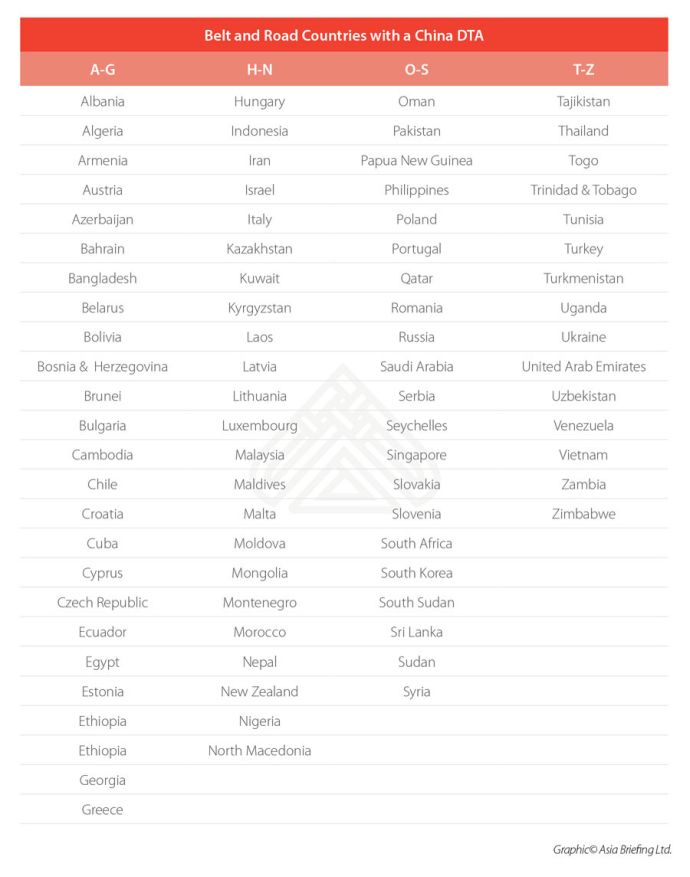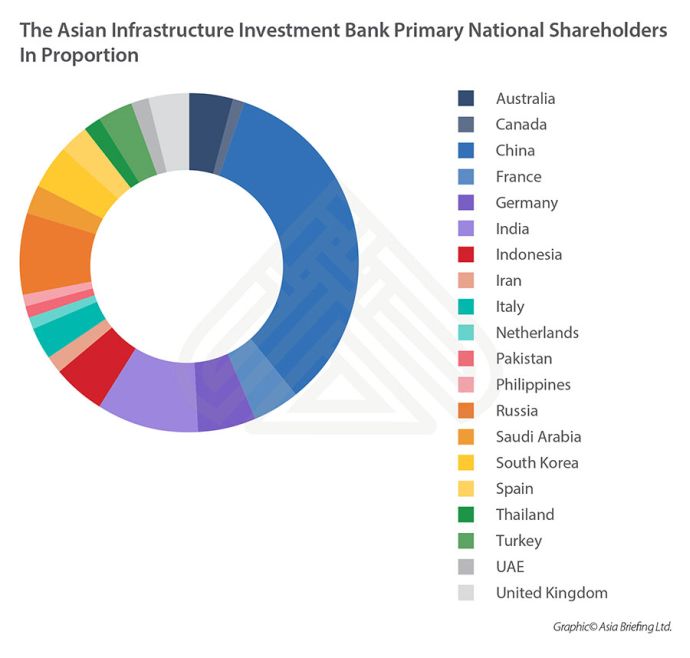To print this article, all you need is to be registered or login on Mondaq.com.
Op/Ed by Chris Devonshire-Ellis & Hazel
Wang
China’s new foreign investment law kicked in from 1st
January 2020 – and promises equality for foreign investors in
China when it comes to competing with China’s domestic
companies for procurement contracts. In doing so it has changed the
landscape for foreign investment in China by offering foreign
investors a more level playing field “equal” to Chinese
companies. There will be doubters that this will be implemented,
however there are also reasons for this shift – academic
studies globally have shown that fairer procurement results in
better end results, and lessens the opportunity for corruption. It
also upgrades engineering and other applicable standards. This is
of importance to Beijing, embarrassed by shoddy Chinese works
overseas resulting in several collapsed buildings, bridges and
towers. Getting foreign investment into China’s overseas
infrastructure build is seen by Beijing as minimizing risk.
Why Get Involved In Belt & Road Procurement?
The Belt & Road Initiative, coupled with the new FIE law,
provide significant opportunities for Foreign Investors in China,
as estimates of the impact of the Belt & Road last year
suggested it increased global trade by US$117
billion. The overall impact on Global trade since the
Belt & Road Initiative was announced has been an estimated
US$460 billion since 2013. That figure is not going to slow down
any time soon. Foreign Investors can get involved by providing
products and services to the myriad of projects that are being
undertaken around the world.
Although the spectre of unfair competition will always raise its
head when domestic money is being made available in procurement, at
present just under 40% of all procurement contracts linked to the
Belt & Road Initiative do go to foreign companies. The new FIE
law can be expected to increase that, and it specifically states in
its Article 16: “The State protects foreign-funded
enterprises’ participation in government procurement activities
through fair competition. Products produced and services provided
by foreign-funded enterprises within the territory of China shall
be equally treated in government procurement according to
law.”
What Does China’s Procurement Law Say?
We have cross-referenced the new Article 16 in the FIE against
the existing Chinese laws regulating Government Procurement
(“GP”), and can deduce the following:
According to the “Government Procurement Law of the
People’s Republic of China” (amended in 2014),
legally speaking, GP shall abide by the principles of transparency,
fair competition, impartiality and good faith.
The law says, suppliers engaging in GP in China activities shall
fulfill the following criteria:
- Have the capacity to independently
bear civil liability;
Note: The “Independent capacity to bear civil
liability” is a legal concept. All limited liability
Foreign invested enterprises in China possess
this capacity. - Have a good commercial reputation and
sound financial accounting systems;
Note: Normally the commercial reputation could be
checked on China Government Procurement Website (http://www.ccgp.gov.cn/), and the
financial audit report of the last year issued by a third party is
required to prove a “sound financial accounting
system.” - Possess the equipment and
professional and technical competence required for performance of
the contract;
Note: Concerning the equipment, normally the
equipment list is required; for the technology, the relevant
certificates shall be provided, including but not limited to, the
qualification certificate, relevant personnel certificate, and
cases/experiences. As GP, there is no uniform standard. The
requirements/measurements depend on the services/products in the
GP. - Have a good record of paying taxes
and social insurance premiums in accordance with the law;
Note: This requires providing copies of relevant audit
documents, checks may also be conducted. - Have no record of major violations in
its business activities for the three years prior to participation
in GP activities;
Note: Background checks would be conducted with the PSB and
local courts. - Other criteria stipulated in laws and
administrative regulations.
Foreign Investors in China should also take note of the
“Bidding Law of the People’s Republic of
China” and “Implementation Regulations for the
Law of the People’s Republic of China on Tenders and
Bids”.
Elements To Consider When Looking At Foreign Invested Belt
& Road Procurement
In addition to these, buyers may, in accordance with special
requirements of procurement projects, specify particular
requirements for the supplier, such as providing the relevant
qualification certificates and information on commercial
achievements. In addition, GP shall assist the realization of
national policies on economic and social development, including
environmental protection, support for undeveloped and ethnic
minority regions, and promotion of small and medium-sized
enterprises on so on – China’s way of asking you to show
you are an upstanding business in the Chinese community. Meanwhile,
when engaging in GP activities, commercial interests such as a
procurement price lower than the average market price, procurement
efficiency and high quality are also considered.
That said, Beijing has an eye on Chinese contractors providing
shoddy work and has been embarrassed by several Belt & Road
Initiative projects built to sub-standards. This is embarrassing
for the Government and they want it stopped – hence the
reason to encourage foreign investment in this area. Xi Jinping
doesn’t want his Belt & Road legacy to go down in a mound
of collapsed buildings and bridges, as has happened recently in
numerous countries. The new FIL encourages foreign investors to
come in and help – investors that can provide the required
due diligence, a rise in standards, and better operational and QC
standards being put in place. There is an obvious stress between
China’s requests for “lower than market average
prices” and “high quality”. Its the latter that will
become the more important in upcoming projects, and the tendering
of materials for them.
Other factors to consider when competing are elements such as
whether of not your country of business origin has signed off a
Belt & Road MoU with China, or is a significant investor in the
Asian Infrastructure Investment Bank or New Development Bank. If
so, it would be helpful to mention this in the qualifying
documents. A list of countries who have signed MoU with China
concerning the Belt & Road Initiative and also have a Double
Tax Treaty with China is here:

A list of the major shareholders (at least 1% of equity) in the
Asian Infrastructure Investment Bank is here:

Thus, from the policy aspect, in addition to the general
criteria, the buyer may also consider other factors, like special
qualifications for the project, economic and social development,
efficiency and so on.
Other Forms Of General Procurement In
China
Concerning the general GP process, in addition to Public
Invitation, Foreign Invested Enterprises can be expected to
encounter several other forms of GP:
- Private invitation of bids;
- Competitive negotiations;
- Single-source procurement;
- Requests for quotations.
In terms of becoming aware Public or other GP, a compliant many
Foreign Investors (FIE) have is that they find it difficult to
obtain any information about them. In actual fact, this is often a
sign of local weakness in the FIE itself as they simply do not
have, or have not instructed staff to look out for notices of
invitation for bids in Chinese publications, information networks
and other media designated by the State. This needs to be
corrected. There is no point in complaining about not receiving
information of tenders if your company isn’t looking for them
in the local language – Chinese.
It is also possible for FIE’s to form a Joint Venture with
other legal entities in China to take part in GP as a single
supplier and therefore combine resources. FIEs also have the right
to file complaints about and report violations of laws in the
course of GP activities.
Becoming Part Of The Procurement Process In China’s Belt
& Road Initiative Procurement Intelligence
The obvious starting point in analyzing whether there is demand
for your businesses products and/or services. Large MNC’s may
already be aware if they have an existing on-the-ground presence in
China, companies that are yet to enter the China market will
instead need to conduct research, and especially of the type of
procurement projects that have already been awarded. Our firm has
an effective Business Intelligence division, spread across China
and several Eurasian countries, and can provide this background.
Websites such as this one are in fact part of our Business
Intelligence division. We can also keep you updated on upcoming or
just announced General Procurement requirements as they are
announced in the Chinese media and state organizations. We also
keep tabs on Procurement activities in other Belt & Road
nations and have an idea of what is coming down the pipeline.
Getting Established In China
There are several different options, although to take part in GP
a limited liability corporation is a must. As many of the Belt
& Road Initiative projects are overseas, it makes a lot of
sense to place your business in a Free Trade Zone in China, as
these permit the importation of products duty free into the zone.
Component parts from China can then be added (and VAT claimed back
on those) and processing carried out within the zone. When the
applicable final product is finished, it can then be shipped to the
project destination. China has many such zones, right across the
country and in different industry sectors. Many also offer
investment incentives. Contact us with descriptions of what you
want to do and the feasibility of it and we’ll provide advice
on the best solution for your business.
Partnering With Chinese Companies
It will be possible from next year to establish short term Joint
Ventures with Chinese partners for the purpose of combining
expertise and materials in order to provide a single face when
looking to bid for Procurement contracts.
Due Diligence & Contracts
The Chinese are very familiar with the legalities of their own
contractual system, foreign investors may not be so well informed.
Due diligence should be carried out first on any intended partners
– legal, financial and operational, the latter requiring site
visits and document inspection to ensure they can do what they say
they are capable of. We have teams on the ground that can conduct
this, and have had for nearly three decades. Contracts will be in
Chinese law and need examining and negotiating to bring them to
Foreign Investors understanding. Our legal team can assist.
Belt & Road Project Profit Repatriation
This is a tax issue and needs to be dealt with as part of the
incorporation process. An important aspect to this is whether or
not your business country of origin has a Double Tax Treaty (DTA)
with China and if so, its contents. These often provide for tax
relief, lower duties, and even reductions in standard profits taxes
by 5-10%. We maintain a database of DTA and have a large tax
advisory team familiar with bilateral work. Making your China
operations tax efficient and maximizing the profits that can be
made is an important part of the establishment process.
China’s Belt & Road Initiative changes again the
dynamics of Foreign Investment into China. 27 years ago, when our
firm began operations, it was all about inexpensive production for
sending back home. 15 years ago the ability to sell to produce in
China and sell to China was introduced. Now the changes involve
using China as a Manufacturing and Services base from which Global
infrastructure projects can be managed. It is time to get aboard
the Belt & Road train.
This article has been updated from the original article,
“Preparing Foreign Investors For Procurement In China Belt
& Road Projects” written on June 29th 2019 to
reflect recent changes.
The content of this article is intended to provide a general
guide to the subject matter. Specialist advice should be sought
about your specific circumstances.


